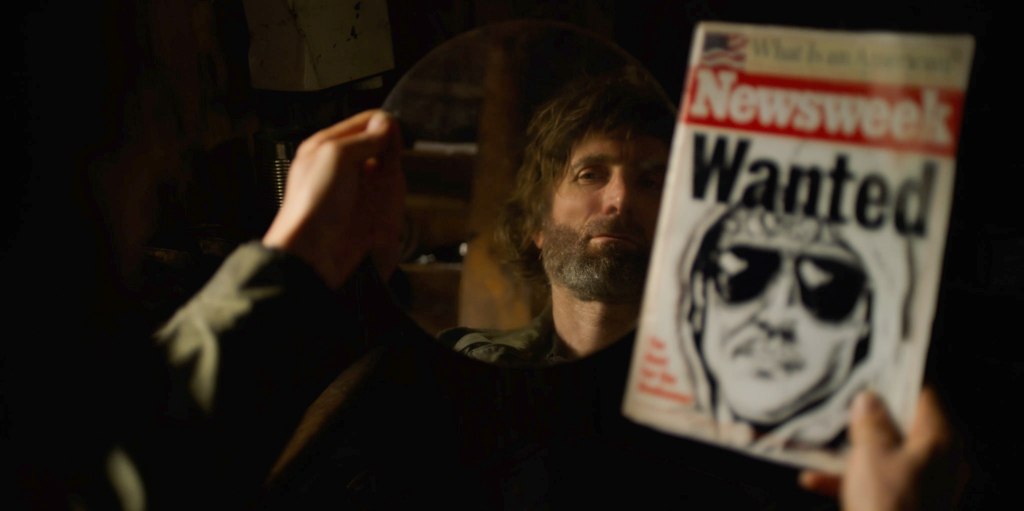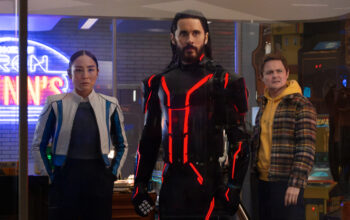Ted K

Packed with cinematic tricks (cuts, fades, tilted angles: the lot!) and led by Sharlto Copley’s committed American accent, this film traces the terrorist activities of Ted Kaczynski, otherwise known as the Unabomber. Despite the deployment of Ted’s private and public musings to buttress the script, among other documentary stylings, the narrative relies on abstracted snippets and fantastical set pieces for movement and progression. Director and co-writer Tony Stone favours kinetic action and dynamic camera trails to articulate a murderer’s frayed psychology, one of deep intellect melded to deeper embitterment.
The moral case is worth noting with these types of biopics. The subject is still alive, and while this bears no immediate effect on the present images, it does spread a pall over Ted’s characterisation and subsequent judgement of his behaviour. As ever, the filmmakers claim objective detachment. But any such depiction is more complicated and likely prurient, an assessment particularly relevant to the crimes at hand, which were often exacerbated in the space between the act and its mediation. After decades of detonations, injuries and killings, Ted’s eventual imprisonment was down to his brother, who detected his syntactic style in a widely published philosophical manifesto. Terrorism, after all, relies on the public interplay of fact and fiction.
This is a mightily caffeinated and restless work. A Waldenesque existence in the hills of Montana is evoked in abrasive close-ups and thwarted points of view. Sharp colour saturations indicate an unfettered state of mind, as Ted’s hatred of humanity and despair at environmental degradation collide in deluded synergy. The protagonist is shot through an array of unflattering perspectives: looking back from a speeding motorbike; gazing upward from a toilet; sitting just beneath Copley’s chin. In fact, the entire visual and sonic canvas is tilted to excess: Vivaldi and Beethoven interweave effortfully around Bobby Vinton’s classic melancholy ode, Mr Lonely, while the dissociated use of sound design alternates from clacking typewriters to devastating jet engines. Fittingly, the score from Blanck Mass is more unrelenting than lamenting.
The wooded pastoral bliss is juxtaposed against polluting planes overhead. The romanticised self-sufficient warrior, stripped to the waist, is shown engaged in intimate domesticity: chopping vegetables, slicing bread and manufacturing explosives. Scenes with a potential love interest provide the most pathos, but the filmmakers are keen to distance the viewer from a cerebral comprehension of trauma. This is a useful move, reliant on the overload of sounds and pictures, the guts of cinema. But the bricolage of effects equates to a mix-and-match that fails to form a satisfying whole. Copley is a willing and odious centre, but around him, it’s a bombardment in every sense.
Joseph Owen
Ted K does not have a UK release date yet.
Read more reviews from our Berlin Film Festival 2021 coverage here.
For further information about the event visit the Berlin Film Festival website here.
Watch the trailer for Ted K here:























Facebook
Twitter
Instagram
YouTube
RSS